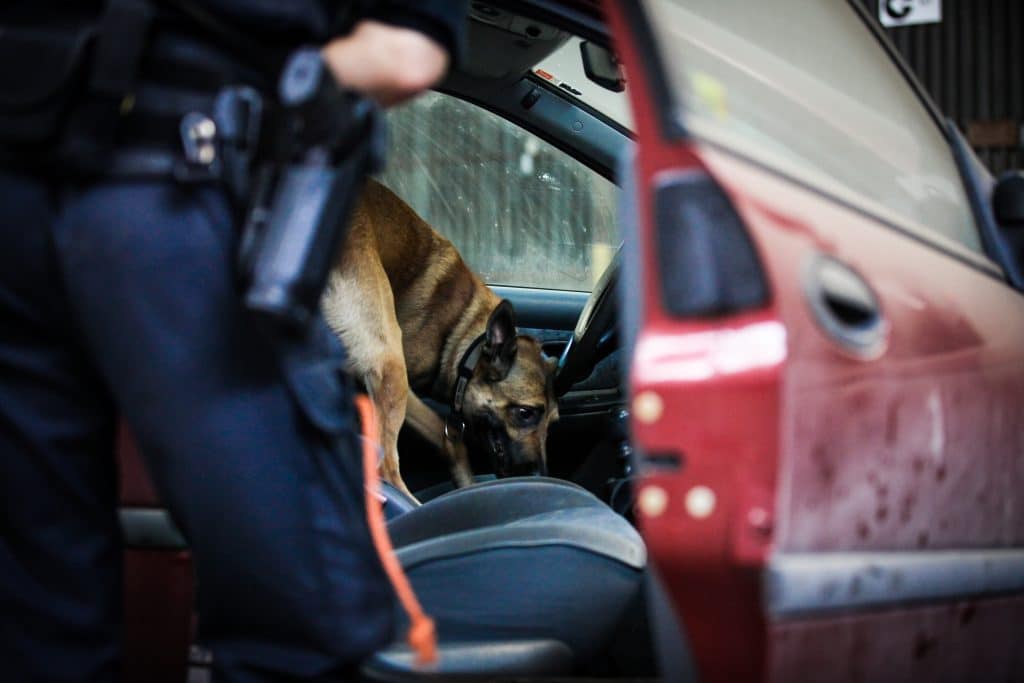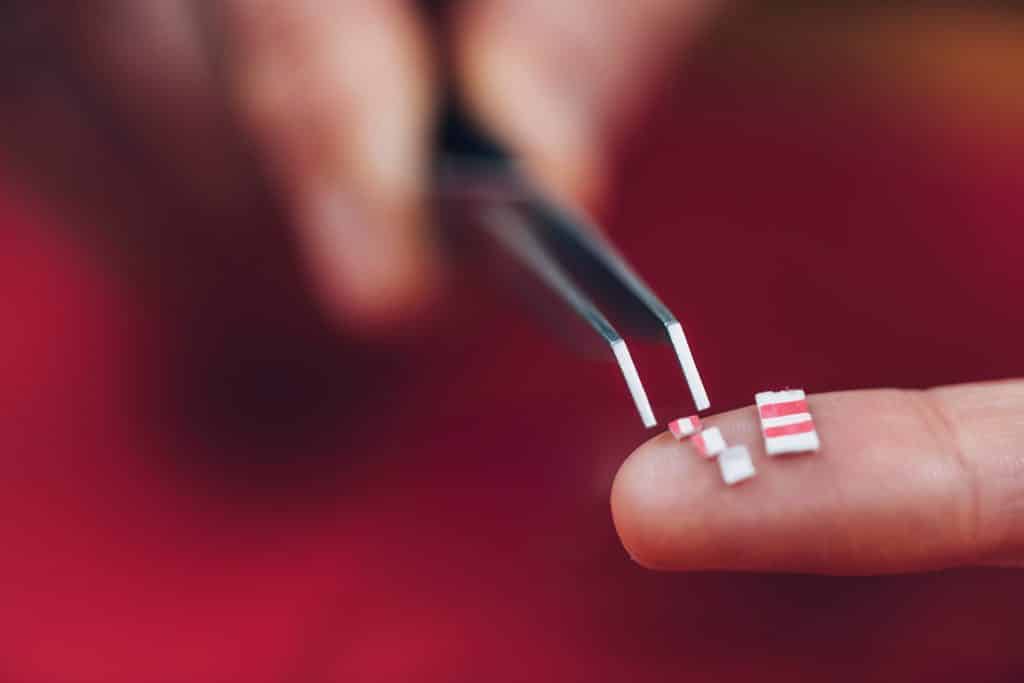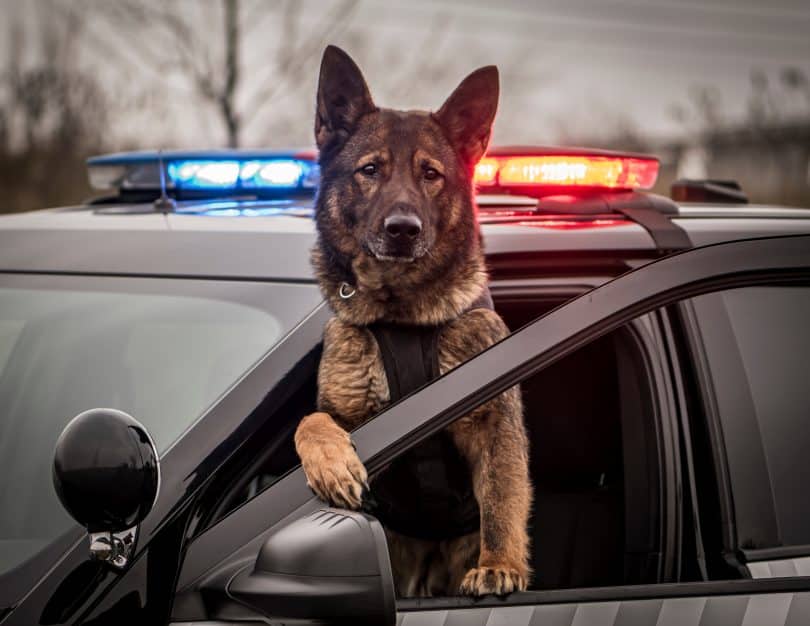Just to put it out there, drug dogs actually might detect your psychedelics, but it’s highly unlikely. Not that they couldn’t, because dogs have roughly 300 million olfactory receptors in their noses and a sense of smell that’s about 10,000 times stronger than a human’s, not to mention they’re one of the most trainable animals on earth; but simply put, they most likely were not trained for it.
So, what substances are drug dogs trained to find? And under what possible circumstances would they be trained to find psychedelics? Can all psychedelics even be detected via odor? Let’s take a deeper look.
Drug Dogs, Psychedelics and Cannabis
In recent years, drug dogs have been utilized by law enforcement agencies to detect illicit substances such as cocaine and heroin. However, with the increasing popularity and legalization of psychedelics and cannabis, researchers have begun to explore the ability of drug dogs to identify these substances. Let’s learn more about drug dogs and their accuracy in detecting psychedelics and cannabis.
History of police K9s in the US
The dog, or canine as we know it, is a subspecies of the gray wolf, and was the first animal to be domesticated by humans. Canines have been used for hunting and security since ancient times, as seen with the Romans and Spanish Conquistadors. In more recent history, canines have been used by police and military forces in the UK, Germany, Russia, United States, and many other nations.
In law enforcement specifically, dogs have been used for over 100 years. Bloodhounds were used to help find Jack the Ripper in 1888, and by 1899, dogs were regularly trained by police forces in Belgium, which eventually became widely known as the global leader in canine training. In 1907, the New York (NY) Police Commissioner, Brigadier General Theodore A. Bingham, sent one of his detectives, George R. Wakefield, to observe the training program in Belgium. Very impressed with what he saw, Wakefield returned with five Belgian sheepdogs to train and breed. This became the very first police K9 unit in the states.
The initial results were wildly unsuccessful. By 1911, the NY police department had 16 dogs trained and had begun sending them out to various residential neighborhoods in Long Island between the hours of 11pm and 7am daily. The dogs were trained to chase and tackle anyone who was out between those times, stand on their chest, and bark until the handlers arrived to calm them. Obviously, nothing about this methodology worked and the process needed to be fine tuned over the years.

Fast forward to 1954, when the police department in Dearborn, Michigan, hired a Marine Corps veteran to train four German Shepherds for patrol. The dogs were trained to scale walls, enter vehicles and hold the occupants, disarm suspects, search buildings, and be “vicious or gentle” on command. After six months on patrol with no incidents reported, the first official, modern-day K9 unit was born.
How drug dogs are trained
In short, drug detection dogs can sniff out anything they are trained to, but typically police departments will stick to the substances that are sold in the highest quantities on the black market: methamphetamine, cannabis, cocaine, heroin, and ecstasy. Additionally, some substances have no detectable odor, so a drug dog could not be trained to find ALL substances anyway.
That said, the following method is fairly universal in the training of working, drug sniffing dogs. Ideally, you will teach the dog to associate a toy (often a small white towel) with the scent. This is done by putting low concentrations of the scent that you want the dog to recognize on a toy or small towel, and simply playing with the dog. It does not take long for the dog to begin associating the target scent with their fun play toy, and eventually, locating the smell becomes part of the game. When they locate the source of the smell, they get a treat, and thus, a drug dog is trained.
Any dog can be trained to find drugs, but some breeds have a better sense of smell than others, and additionally, others are more trainable. Some of the more popular police dog breeds in the United States are German Shepherds, Beagles, and retriever breeds.
Why most dogs won’t find your psychedelics
So, there are a couple reasons why it’s incredibly unlikely for a drug sniffing dog to find psychedelics. First and foremost, they probably were not trained for it. As stated above, the goal is to intercept drugs that are pulling in big money from the illicit market; DMT, LSD, shrooms, etc., being somewhat rare and non-addictive, don’t really fit the bill. Why would cash-strapped departments invest in training a dog to sniff out uncommon drugs when they can confiscate FAR more contraband by having them find the other aforementioned substances?
Additionally, some compounds, such as LSD, don’t have a detectable odor, so a drug sniffing dog would struggle to find them. In this scenario, some highly trained K9s might be able to detect chemical impurities or cross contamination from other drugs that may have occurred during the manufacturing process. But short of any production errors, your LSD is probably safe.

But what about other odorless compounds, like cannabis isolates? Although I could not find any formal information about it online, it does seem to be generally accepted that dogs are trained to smell the combination of compounds in actual flower, or products that contain live resin and full-spectrum oils. Isolated cannabinoid compounds are inherently odorless, because all of the terpenes that produce smells are stripped from the final product, so a dog should not be able to find them unless, again, some type of mistake occurred during the production process.
Training your own dogs
I believe a common question that comes up in conversations about drug dogs (if you’re a stoner, anyway) is whether an average person can train their own dogs to find drugs. Admittedly, that’s crossed my mind before too. Not that I lose weed very often, but in the rare and highly inconvenient occasions that it does happen, what would be better than having my well-trained dog find it for me?
In my experience, the process is easier said than done. There could be numerous different factors at play for why my own training (following the above method) was unsuccessful. Clearly, I’m not a professional dog handler, so there’s that. Or maybe I was not consistent enough and gave up too soon. Or maybe because the dog was around my cannabis products and I was smoking pretty constantly, the smell on her toys wasn’t discernible enough to make a difference. Either way, it didn’t work.
That’s not to say any of you couldn’t successfully train a dog to sniff out weed, but you’ll have to be more diligent than I was, and it would probably be in your best interest to set up a controlled environment for the training (ie, don’t expose the dog to cannabis smells in the weeks beforehand, if possible).
Final thoughts on drug dogs and psychedelics
Point blank, a dog can find anything it was trained to find. Studies have found that some breeds can even accurately smell cancer cells in a patient’s blood. If they can do that, they can certainly find your drugs. But taking into consideration how law enforcement K9s are only trained to detect up to 5 different substance, it’s reasonable to assume that police departments won’t waste their time training dogs to find ones that are not perceived as common problem drugs.
Keep yourself informed – subscribe to our newsletter
To stay current on everything important happening in the industry, subscribe to The Cannadelics Newsletter. Also, it’ll get you premium access to deals on cannabis and legal psychedelic product.
Simply place your email below:







